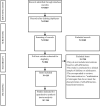Effectiveness of Self-Affirmation Interventions in Educational Settings: A Meta-Analysis
- PMID: 38200909
- PMCID: PMC10779329
- DOI: 10.3390/healthcare12010003
Effectiveness of Self-Affirmation Interventions in Educational Settings: A Meta-Analysis
Abstract
School and university can be stressful contexts that can become an important source of identity threats when social prejudices or stereotypes come into play. Self-affirmation interventions are key strategies for mitigating the negative consequences of identity threat. This meta-analysis aims to provide an overview of the effectiveness of self-affirmation interventions in educational settings. A peer-reviewed article search was conducted in January 2023. A total of 144 experimental studies that tested the effect of self-affirmation interventions in educational contexts among high school and university students from different social and cultural backgrounds were considered. The average effect of self-affirmation interventions was of low magnitude (dIG+ = 0.41, z = 16.01, p < 0.00), with a 95% confidence interval whose values tended to lie between 0.36 and 0.45 (SE = 0.0253). In addition, moderators such as identity threat, participants' age, and intervention procedure were found. Through a meta-analysis of the impact of self-affirmation interventions in educational contexts, this study suggests that interventions are effective, resulting in a small mean effect size. Thus, self-affirmation interventions can be considered useful, brief, and inexpensive strategies to improve general well-being and performance in educational settings.
Keywords: college students; education; effects; intervention; schoolchildren; self-affirmation.
Conflict of interest statement
The authors declare no conflict of interest.
Figures
Similar articles
-
Recovery schools for improving behavioral and academic outcomes among students in recovery from substance use disorders: a systematic review.Campbell Syst Rev. 2018 Oct 4;14(1):1-86. doi: 10.4073/csr.2018.9. eCollection 2018. Campbell Syst Rev. 2018. PMID: 37131375 Free PMC article.
-
Randomised Controlled Trial of Self-Affirmation Intervention on Students' Academic Performance: Promising Impacts on Students from Migrant Hukou Status.Psychol Res Behav Manag. 2023 Sep 4;16:3607-3621. doi: 10.2147/PRBM.S419112. eCollection 2023. Psychol Res Behav Manag. 2023. PMID: 37693329 Free PMC article.
-
Deflecting the trajectory and changing the narrative: how self-affirmation affects academic performance and motivation under identity threat.J Pers Soc Psychol. 2013 Apr;104(4):591-618. doi: 10.1037/a0031495. Epub 2013 Feb 11. J Pers Soc Psychol. 2013. PMID: 23397969 Clinical Trial.
-
Self-affirmation and responses to health messages: a meta-analysis on intentions and behavior.Health Psychol. 2015 Feb;34(2):149-59. doi: 10.1037/hea0000110. Epub 2014 Aug 4. Health Psychol. 2015. PMID: 25089345 Review.
-
Centre-based early education interventions for improving school readiness: A systematic review.Campbell Syst Rev. 2023 Dec 13;19(4):e1363. doi: 10.1002/cl2.1363. eCollection 2023 Dec. Campbell Syst Rev. 2023. PMID: 38093815 Free PMC article. Review.
Cited by
-
Coping With Microaggressions and Gaslighting in the Surgical Learning Environment.Plast Reconstr Surg Glob Open. 2025 Jan 29;13(1):e6435. doi: 10.1097/GOX.0000000000006435. eCollection 2025 Jan. Plast Reconstr Surg Glob Open. 2025. PMID: 39882429 Free PMC article.
-
Understanding the nature and dynamics of self-affirmation in non-depressed and subclinically depressed Indian adults: a thematic analysis.BMC Psychiatry. 2025 Mar 11;25(1):224. doi: 10.1186/s12888-024-06364-0. BMC Psychiatry. 2025. PMID: 40069635 Free PMC article.
-
The emotional and motivational costs of poorly delivered academic feedback.Front Psychol. 2025 Jun 30;16:1585447. doi: 10.3389/fpsyg.2025.1585447. eCollection 2025. Front Psychol. 2025. PMID: 40662180 Free PMC article.
References
-
- Garcia T., Pintrich P.R. Self-Regulation of Learning and Performance: Issues and Educational Applications. Lawrence Erlbaum Associates, Inc.; Hillsdale, NJ, USA: 1994. Regulating motivation and cognition in the classroom: The role of self-schemas and self-regulatory strategies; pp. 127–153.
-
- Fordham S., Ogbu J.U. Black students’ school success: Coping with the “burden of acting White”. Urban Rev. 1986;18:176–206. doi: 10.1007/BF01112192. - DOI
-
- Steele C.M. Advances in Experimental Social Psychology, Vol. 21: Social Psychological Studies of the Self: Perspectives and Programs. Academic Press; San Diego, CA, USA: 1988. The psychology of self-affirmation: Sustaining the integrity of the self; pp. 261–302.
-
- Major B., Spencer S., Schmader T., Wolfe C., Crocker J. Coping with negative stereotypes about intellectual performance: The role of psychological disengagement. Personal. Soc. Psychol. Bull. 1998;24:34–50. doi: 10.1177/0146167298241003. - DOI
-
- Aronson J., Fried C.B., Good C. Reducing the Effects of Stereotype Threat on African American College Students by Shaping Theories of Intelligence. J. Exp. Soc. Psychol. 2002;38:113–125. doi: 10.1006/jesp.2001.1491. - DOI
Publication types
Grants and funding
LinkOut - more resources
Full Text Sources



